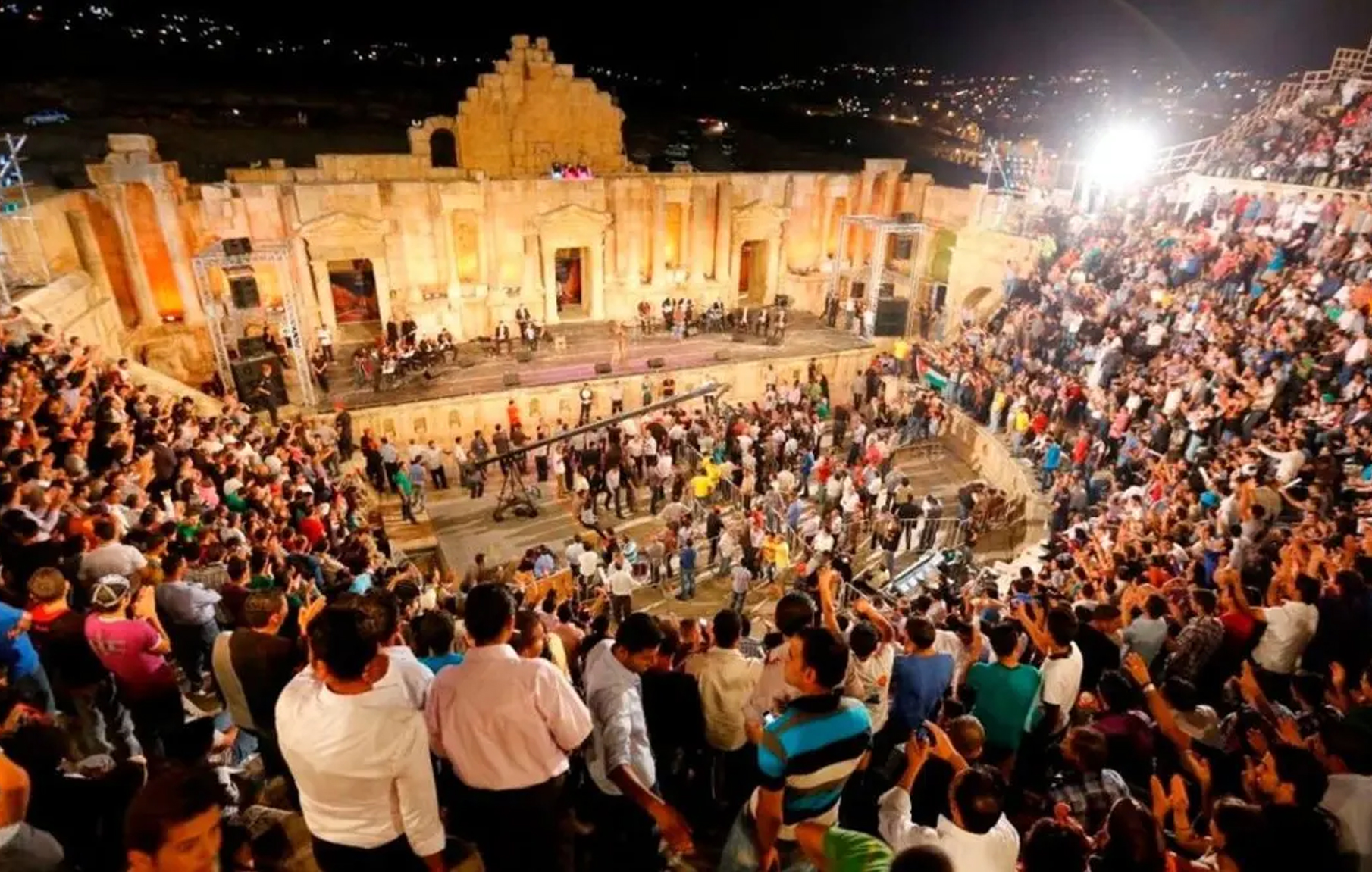
Al-Najjar: The Jerash Festival continues with a decision from the highest levels in the country
- There are no taboos or political authority restricting cultural action
- The Ministry of Culture is not on the margin and its budget is very weak
- We need a digital platform and a database that draws a road map for culture and creativity
The Minister of Culture, Haifa Al-Najjar, refused to describe the Ministry of Culture as being on the margin, stressing that through her position as Minister of Culture, she does not allow the ministry to be marginalized, even if there is a general belief in that, and added that the ministry’s role is to empower all cultural segments.
Al-Najjar stressed that the budget of the Ministry of Culture and the Department of the National Library, estimated at 14 million, is very weak, and that what is essential today is to develop a future vision, while considering the assessment of the current reality of culture in Jordan, noting the start of holding dialogues and strategic thinking within effective partnerships with stakeholders.
During the media forum that was organized by Center for the Defending Freedom of Journalists (CDFJ) in cooperation with Zain Company, which was attended by which was attended by more than 90 journalists and various cultural representatives in Jordan, Al-Najjar said that investment in culture is rare despite the diversity of Jordanian stories and narratives.
Al-Najjar stressed that Jordan is a place for the birth of talent, and has a lot of young energies, and creative, poetic, musical, philosophical, and intellectual capabilities, noting the need for a digital platform or database that draws a road map of intellectuals, writers, poets, and creators in the Jordanian governorates.
The minister added that Jordan faced some challenges in its first centenary, and suffered some failures, but the second centenary promises that Jordan will be influential in cultural action.
In the dialogue that was moderated by Nidal Mansour, Founder of CDFJ, and in response to a question related to the Jerash Festival, The Minister of Culture emphasized that the Jerash Festival represents Jordanian cultural history, explaining that there is a national decision from the highest levels in the country that the festival should continue and should develop to be one of the best in the Arab world and internationally, as it is a platform to unleash young Jordanian energies and Jordanian creators in various cultural fields.
Al-Najjar explained that the role of the Ministry of Culture is the employment of artists, narrators, writers, and filmmakers, and investing in their talents as they are agents of change, noting that establishing effective partnerships between the ministry, cultural centers, civil society organizations, and the private sector ensures that culture has role in development and growth.
The minister denied that there is any political authority, or taboos, restricting cultural work, and at the same time acknowledged the existence of societal control over cultural action, and called on all parties to provide constructive criticism, critical thinking, and the establishment of a societal culture in which everyone agrees.
Al-Najjar added that the Ministry of Culture and the Department of the National Library are trying not to impose restrictions on cultural movement and freedoms in general, but any cultural publication or book must align with the general principals known and agreed upon.
The minister complemented the cultural role played by Abdul Hameed Shoman Foundation, and stated that the foundation accomplished many achievements in the cultural reality at a time when the cultural act was completely absent. She added that the foundation provided and continues to provide cultural work in harmony with the Jordanian reality, and the aspirations of the Jordanian youth, as it did not abandon the sincere the Jordanian spirit.
Furthermore, Al-Najjar has expressed her respect for the issued reports of the Economic and Social Council and the recommendations issued by it, stressing that the council is one of the most important institutions whose reports must be carefully considered.
On the recommendations of the council’s reports that are related to the state of culture in Jordan, the minister indicated that the ministry began implementing what it is capable of. For instance, at the theater level; the ministry amended the regulations and instructions regulating theatrical work, and conducted a dialogue with playwrights and the Jordanian Writers Society to empower theatrical performers and support young theater bands.
Al-Najjar stressed that the Ministry of Culture builds partnerships with all ministries, especially the Ministry of Education and the Ministry of Tourism, as theatrical work will be included in school programs, and the Ministry of Culture will train and qualify art teachers in the Ministry of Education.
As for the partnership with the Ministry of Tourism, Al-Najjar said that they enjoy a real and effective partnership, within an integrated strategic vision, referring to the joint work that is evident in the activities of the Global Food Village currently being held in the French capita, Paris.

